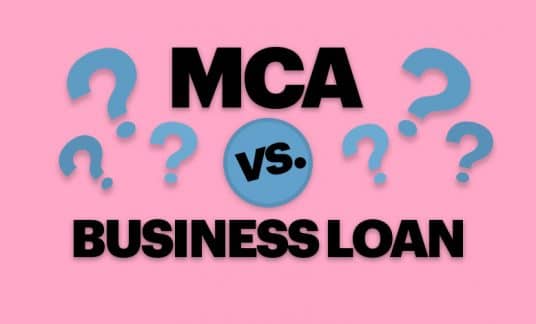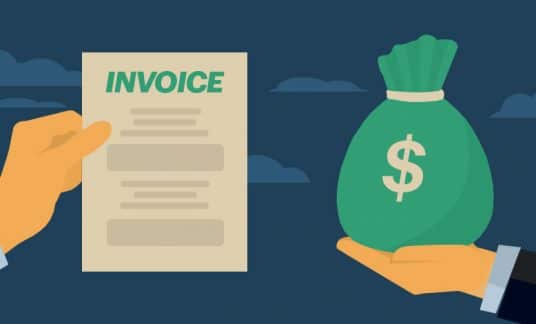Whether you own a company that’s just getting off the ground or you have your sights set on expanding your small business in the near future, the costs of pursuing these goals can deplete your reserve funds — leaving you with barely enough capital to continue operations.
This is why many business-to-business (B2B) vendors offer to create a business tradeline with their purchasing companies.
What Is a Business Tradeline?
A business tradeline is formed when a B2B buyer creates an account with a vendor in which the buyer agrees to repay the vendor over time for products and services provided at the present.
It’s like a business credit card for purchasing goods: Instead of using a financial institution, you tap a line of credit that comes straight from the product’s source.
Note that a business tradeline is the record of transactions made between the vendor and the purchasing company, while the business account is the agreement between the 2 parties.
For Example
A small business might register an account with an office supply wholesaler, which would then deliver an order in full to the buyer with the understanding that the buyer will pay the vendor back in installments throughout the months to follow.
Typically, terms are set at “net 30,” “net 60” or “net 90,” meaning the buyer agrees to pay the vendor back over the next 30, 60 or 90 days.
A business tradeline acts as evidence of a purchasing company’s financing and repayment history, allowing other lending or crediting vendors to know whether they should let the buying company open an account with them.
Your Business Credit Score and Tradelines
If your history shows periods of delinquency, vendors will likely shy away from reaching agreements with you. On the other hand, if you’ve proven to be a reliable borrower, you should have little difficulty obtaining lines of credit or other business funding options.
Small Business Tip
If your company has no business tradeline history, vendors may look at your personal credit score to gauge creditworthiness.
Make sure to stay on top of both, because your personal finances could be the deciding factor in getting the business funding you need.
As with personal credit scores, business credit scores are determined using a variety of data regarding a company’s financial and credit history and are a reflection of a company’s creditworthiness. Your tradeline history can have a large effect on your overall score.
If you want your business credit score to factor in your tradeline history, make sure you establish an account with a vendor that reports tradelines to a financial institution that will calculate them—Equifax, Experian, Dun & Bradstreet or FICO.
However, some vendors don’t report tradelines to credit bureaus. Your best course of action is to ask your potential vendor what their policy is regarding reporting business tradelines.
How Do Closed Business Tradelines Affect Business Credit Scores?
For a variety of reasons, vendors and buyers (or even just one of the 2 parties) might decide to close the tradeline between them—essentially meaning a parting of ways for both.
Closed business tradelines can have a huge impact on a purchasing company’s credit score.
This impact can be felt in 2 ways. When a tradeline is closed out:
1. It’s noted on your credit report
Accounts in good standing typically stay on a credit report for 10 years; however, if your account was in poor standing when it was closed, that blemish will stay on your report for about 7 years.
2. It can negatively affect your credit-utilization ratio
Let’s say you have 3 active accounts open, each with a $50,000 limit. Account A is completely paid off; Account B carries a $15,000 balance; Account C carries a balance of $25,000.
In that scenario, your total credit usage is $40,000 out of a maximum of $150,000, or a little more than 26%. But, if you were to close Account A, your total credit usage would be $40,000 out of $100,000, or 40%. This could wreak havoc on your business credit score.
While you’ll open and close a number of tradelines as you operate your business, always consider how these changes will affect your credit score both immediately and in the future.
Seasoned Business Tradelines and ‘Piggybacking’
A seasoned tradeline is one that shows a purchasing company’s good standing with a vendor over an exceptional amount of time. Typically, seasoned tradelines show a record of payments made in full, with no delinquencies, over at least a 2-year period.
But what if a company has little or no credit history? Some companies that have seasoned tradelines open with their vendors will allow smaller businesses to “piggyback” on their excellent credit histories.
How Piggybacking Seasoned Tradelines Works
- Buyer A has seasoned tradelines opened with a number of vendors.
- Buyer B needs to improve their business credit score before any suppliers will consider opening an account with them.
- For a fee, Buyer A will “sell” their tradelines to Buyer B, who then inherits the excellent credit history Buyer A has built up. How is this achieved? Buyer A adds Buyer B as an “authorized user” of his or her accounts. However, Buyer A doesn’t disclose any pertinent account information that would allow Buyer B to make charges against this account.
- Now, Buyer B can show potential vendors “their” excellent credit history, making the vendor more likely to want to do business with them.
The Drawbacks of Piggybacking
When it comes to polishing or establishing your credit history, there are a number of reasons not to pursue piggybacking.
1. Legal and ethical murkiness
While piggybacking isn’t technically illegal, credit institutions don’t look favorably on businesses that participate in this practice. If any red flags pop up and it’s found that you’ve tried to beat the system, your new credit score is likely going to reflect that.
2. Expense
Piggybacking services are essentially companies offering seasoned business tradelines for sale and they’ll charge a few thousand dollars, if not more, to use their good credit history. Paying for a business tradeline for sale can further damage a company that’s already strapped for cash.
3. Potential harm to one’s business credit
Piggybacking merely changes what a company’s financial situation looks like on paper. Even if you were able to secure a line of credit with a new vendor—it’s only because they thought you had the capacity to pay it back. If, in reality, you aren’t able to do so, you’ll end up doing even more harm to your ability to secure business credit in the future.
While piggybacking on seasoned tradelines can work as a last-ditch effort to raise a company’s credit score, your best bet is to simply keep searching for vendors willing to let you prove your trustworthiness.
How to Get Business Tradelines
You can open or add business tradelines with vendors to get the goods you need while building your business credit score. It could be as simple as searching online for vendors that report to credit-rating firms. Use connections you’ve made that could help you find reliable, trustworthy partners.
Opening tradelines with the right vendors is a great step in getting to where you want to go.












